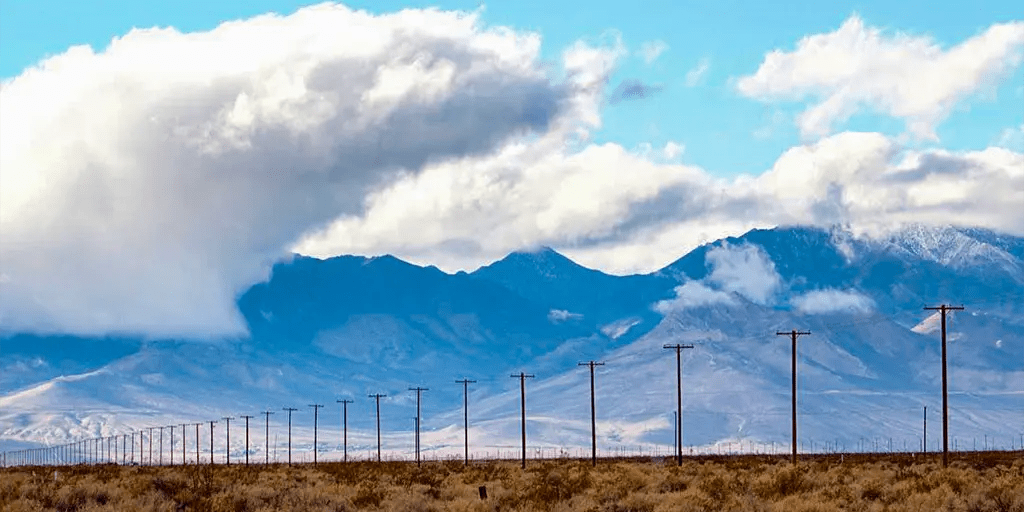By Brenda Shaffer
A centerpiece of President Biden’s agenda was a government led effort to greatly reduce production and consumption of fossil fuels. One of the key policies Biden enacted to pursue this goal was ending of public finance for fossil fuel projects. This policy attracted little public attention or scrutiny, since it had little impact on Americans. The policy mainly impacted the global poor, especially in Africa, which lost access to funding to develop electricity capacity. While ending public finance for fossil fuels provided a feel good moment for the Biden administration and governing elites in other wealthy countries, it hurt the world’s poorest, did not impact climate change and created an opportunity for China to increase its geopolitical influence in Africa and beyond. Cancellation of these restrictions on public finance for fossil fuels should be on the day one list of the incoming Trump administration.
States in the developing world have difficulty attracting commercial investments in their domestic energy sectors, especially for electricity provision. While rich countries that pay high prices for electricity can rely on the private market to develop power capacity, developing countries rely on loans and grants from public finance institutions, like the World Bank and regional development banks, and foreign aid to develop electricity for their populations.
In 2021, the United States together with the G-7, ended finance and loans for fossil fuel based energy projects, leaving the developing world with few finance options for electricity development, which is key to economic growth and poverty reduction. As part of Washington’s climate policies, in August 2021, the U.S. Department of the Treasury announced guidelines to Multilateral Development Banks stating that the “United States will promote ending international financing of carbon-intensive fossil fuel-based energy.” The U.S. has top influence at the multilateral banks, as the main donor thus frequently the World Bank adopts U.S. led policies. In 2019, the World Bank had already stopped funding for fossil fuel production. In December 2021, the G-7 member countries formally ended public finance for fossil fuel projects, including natural gas. At the UK sponsored COP26 in Glasgow, the signatories declared: “we will end new direct public support for the international unabated fossil fuel energy sector within one year of signing this statement.
Through cutting finance to fossil fuels, the Biden administration and the G-7 states believed they could force the developing world to establish renewable projects instead of fossil fuel based electricity. However, most countries rejected this offer. Their energy professionals understood better than the bureaucrats sitting in Washington or Brussels, that today’s renewable energy cannot provide the stable and affordable power that will allow their publics to move up out of poverty. Moreover, wind and solar require baseload power from fossil fuels to provide constant power. Thus, even renewable projects require funding for fossil fuels.
Reducing access to fossil fuels does not mean that pollution and emissions will decrease. In fact, lack of access to stable and affordable electricity produced from fossil fuels, will likely lead to an increase in pollution, emissions and threats to public health. Humans need energy for basic functions, such as heating, cooking and purifying water. If energy is not available, humans will burn dung, lump coal, wood and other biomass. This generates greater pollution, carbon emissions and health threats, than production of electricity from fossil fuels, especially natural gas.
There are several geopolitical implications of the West’s halting of public finance. One, China can reap geopolitical influence through its role as the main funder for energy projects in the developing world. Second, the West’s retreat from finance for fossil fuel projects can generate antagonism in the developing world against the West, as indifferent to the suffering caused by energy poverty. Third, lack of reliable power in the developing world contributes to increased instability in many affected parts of the globe. Fourth, the cessation of public finance for fossil fuels can lead to a slowdown in expanding electricity access in the developing world. For the first time in close to a century, global electricity access declined in 2022 and in 2023 it remained close to flat. Today, one in ten people on the globe do not have access to regular electricity.
The new administration should overturn this prohibition and encourage the G-7 to do the same. The new administration should clarify to the World Bank its support for funding for natural gas and other fossil fuel projects that would benefit the world’s poor. Luckily, Trump’s nominee for Secretary of Energy, Chris Wright is passionate about extending energy access to the world’s poor and has been involved in philanthropy that enables clean cooking for many years.
Reversing this policy and many other Biden era energy policies will not be simple. While some energy policies can be eliminated through Congressional legislation and executive orders, the ban on public finance for fossil fuels was adopted by multi-lateral frameworks, including the G-7, and international agencies, such as the World Bank. The Trump administration will encounter headwinds in attempt to change the policies. It is important to clarify widely that these policies have hurt the world’s poor and need to be reversed. Washington should consider withholding funding to agencies it funds that deny the world’s poor access to funding for electricity.
Prof. Brenda Shaffer is a faculty member of the U.S. Naval Postgraduate School, Senior Advisor for Energy at the Foundation for Defense of Democracies, and a Senior Fellow at the Atlantic Council’s Global Energy Center.
This article was originally published by RealClearEnergy and made available via RealClearWire.
Related


